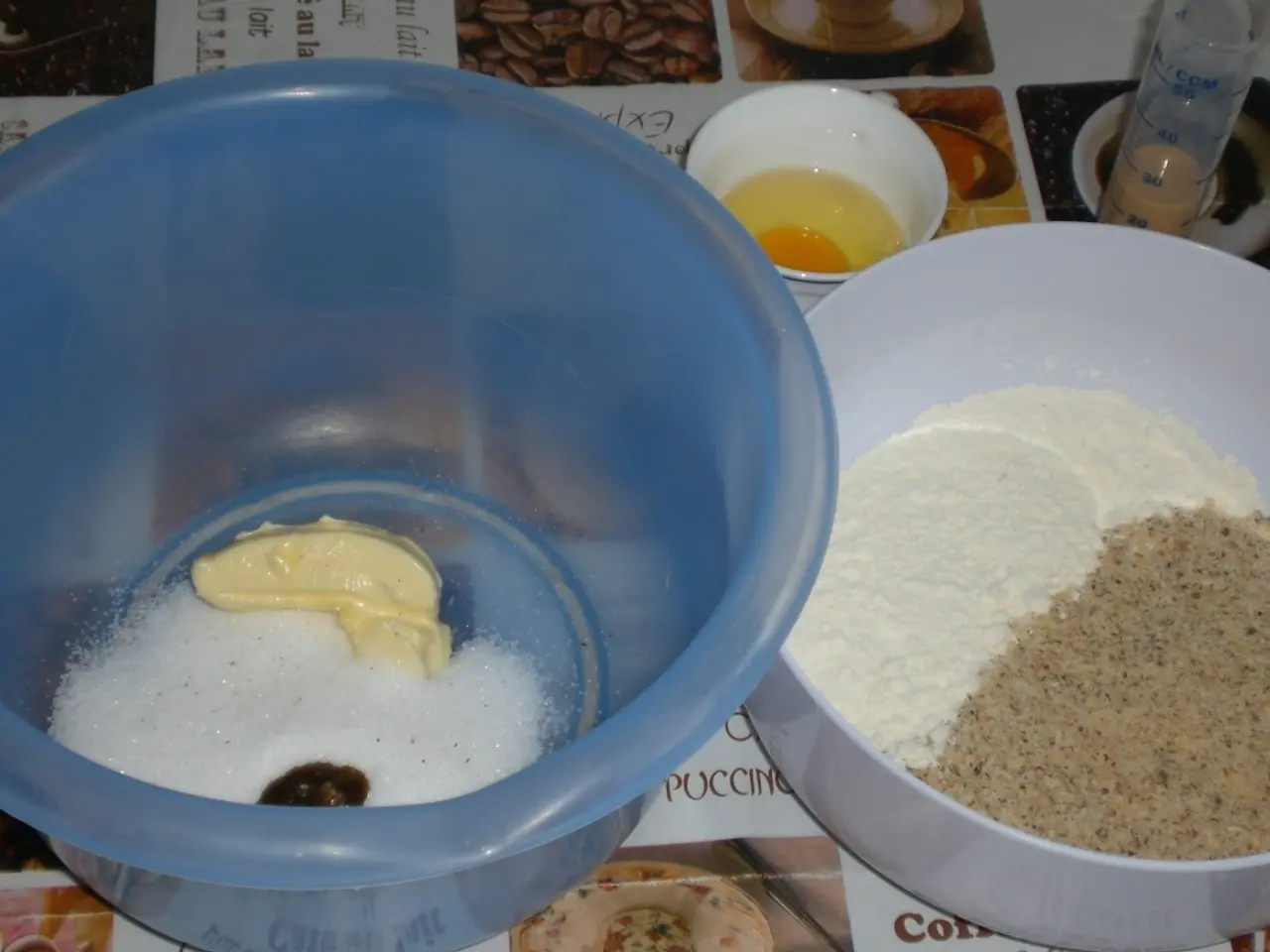A brief rundown on Small Bowel Obstruction: a condition characterized by the blockage in the small intestine, causing problems with digestion and nutrient absorption.
Small Bowel Obstruction (SBO) is a serious medical condition that occurs when the small intestine is blocked, preventing the normal passage of food and digestive juices. This article aims to provide an overview of SBO, its causes, symptoms, and treatment options.
SBO can result from various causes such as adhesions or scar tissue from previous surgeries, hernias, tumors or cancer, inflammatory bowel disease (IBD) like Crohn's disease, twisting or kinking of the small intestine, and volvulus (twisting of the small intestine on itself). In adults, postoperative adhesions are the most common cause in Germany.
The symptoms of SBO are often severe and may include abdominal pain or cramping, nausea and vomiting, abdominal distension or swelling, constipation or inability to pass stool or gas, and fever. If left untreated, SBO can lead to complications such as dehydration and electrolyte imbalance, perforation of the small intestine, peritonitis or infection of the abdominal cavity, short bowel syndrome, malnutrition and weight loss, and sepsis.
Managing SBO symptoms involves a combination of treatments. Fluid and electrolyte replacement is crucial to prevent dehydration and electrolyte imbalance. Nasogastric suction may be used to relieve nausea and vomiting, and pain management may involve prescription pain medications such as opioids or NSAIDs, and in some cases, a nasogastric tube may be inserted for suction.
Treatment for SBO also includes dietary changes and nutrition support, antibiotics to treat underlying infections, and, in severe cases, surgical intervention to relieve the obstruction. This may involve removing the blockage, repairing any damaged tissue, or performing a bowel resection.
To reduce the risk of SBO, maintaining a healthy diet and lifestyle, managing underlying medical conditions such as IBD, avoiding heavy lifting or straining, and seeking prompt medical attention if you experience symptoms are essential.
The prognosis for SBO depends on several factors, including the underlying cause of the obstruction, the severity of the obstruction, the promptness and effectiveness of treatment, overall health and medical history, and the presence of complications.
Chronic SBO can lead to malnutrition and weight loss due to inadequate nutrient absorption, resulting in a weakened immune system, fatigue, and impaired wound healing. Medications to manage SBO symptoms may include anti-nausea medications, antibiotics, and medications to stimulate bowel motility like metoclopramide.
Diagnosis of SBO typically involves a physical examination and medical history, imaging tests such as X-rays, CT scans, or MRI, endoscopy or colonoscopy, and lab tests to rule out other conditions. Early diagnosis and prompt treatment are key to improving the prognosis for individuals with SBO.
Read also:
- Restoring SCN2A gene function in mice through CRISPR activation enhances neurodevelopmental outcomes.
- New York joins a multistate health coalition to counteract chaos in federal vaccine distribution efforts
- Enhanced Iron Absorption in Female Health: Biotechnology Developed Plant Protein Outperforms Iron Supplements in Fermentation
- Controversy Surrounding Epstein Heats Up in Washington; Trump Endorses Homelessness Executive Order; More Events Reported







